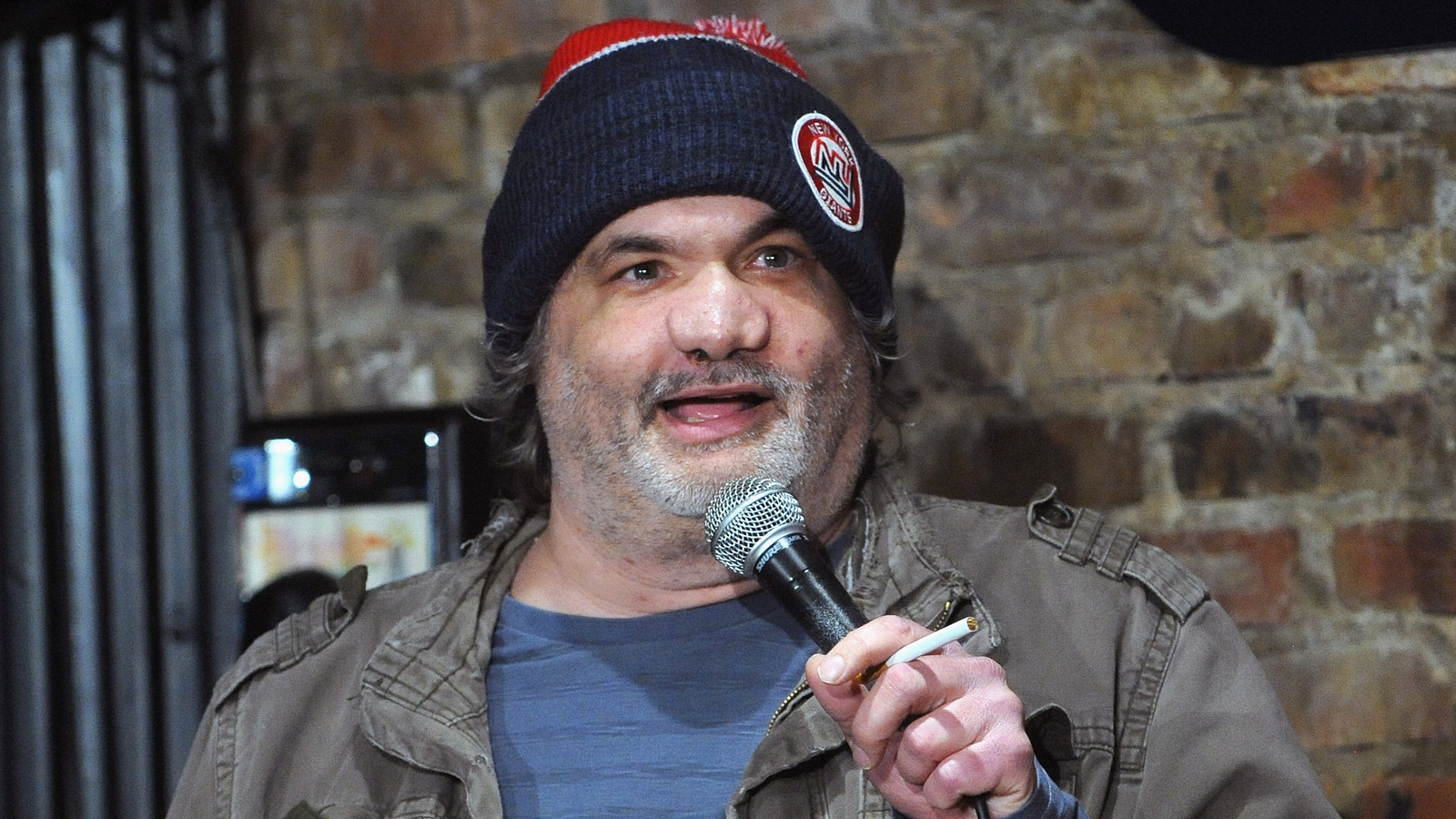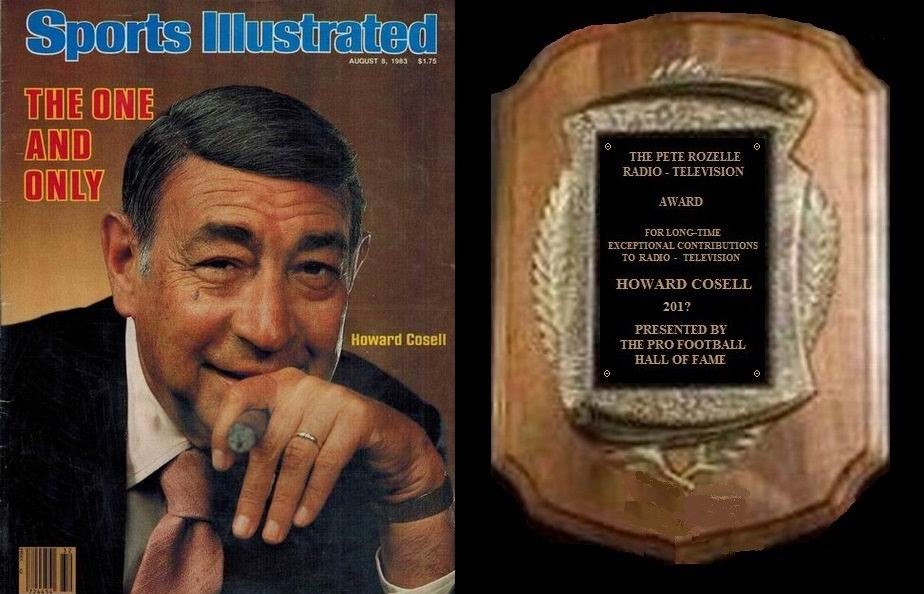Howard Cosell, a name synonymous with sports broadcasting, left an indelible mark on the world of sports journalism. His unique voice, distinctive commentary style, and often controversial opinions made him a household name. However, in the late 1980s, his career took a sudden turn when he was fired from ABC. This decision left many bewildered, as Cosell had been a prominent figure on the network's sports programming for years. In this article, we delve into the circumstances surrounding his departure, exploring the reasons why Howard Cosell was fired from ABC.
Cosell's career was characterized by his bold approach and willingness to tackle sensitive topics. While this garnered him a substantial fan base, it also led to conflicts with network executives and colleagues. As we explore the reasons behind his firing, it's important to understand the broader context of his career and the media landscape of the time. From controversial comments to changing network priorities, multiple factors contributed to this pivotal moment in his career.
Understanding why Howard Cosell was fired requires a comprehensive examination of the events leading up to his departure. We will explore his early career, rise to fame, and the controversies that surrounded him. By doing so, we aim to provide a balanced perspective on the situation, shedding light on the complexities of the media industry and the challenges faced by iconic figures like Cosell.
Table of Contents
- Biography and Early Career
- Rise to Fame
- Controversial Comments
- Conflicts with the Network
- Changing Media Landscape
- Impact on ABC and Ratings
- Public Reaction
- Legacy and Influence
- Personal Life and Bio Data
- Final Days at ABC
- Conclusion
- Frequently Asked Questions
Biography and Early Career
Howard Cosell, born as Howard William Cohen on March 25, 1918, in Winston-Salem, North Carolina, was an American sports journalist known for his vibrant and often controversial commentary. He grew up in Brooklyn, New York, and pursued a law degree at New York University School of Law. Cosell initially practiced law in Manhattan, representing athletes and entertainers, which eventually led him to the world of sports broadcasting.
| Full Name | Howard William Cohen |
|---|---|
| Date of Birth | March 25, 1918 |
| Place of Birth | Winston-Salem, North Carolina, USA |
| Education | New York University School of Law |
| Occupation | Sports Journalist |
| Years Active | 1953–1985 |
Rise to Fame
Cosell's entry into sports broadcasting began in the early 1950s when he hosted a radio show called "Speaking of Sports" on WABC. His distinct voice and candid approach quickly caught the attention of listeners. In 1961, he joined ABC Sports as a commentator for boxing matches, where he formed a dynamic partnership with legendary boxer Muhammad Ali. Cosell's honest and sometimes abrasive style resonated with audiences, propelling him to national fame.
Throughout the 1960s and 1970s, Cosell became a prominent figure on ABC's "Wide World of Sports" and "Monday Night Football." His ability to provide insightful analysis and engage viewers with his charismatic on-screen presence made him one of the most recognizable voices in sports media. However, as his popularity soared, so did the controversies surrounding his outspoken nature.
Controversial Comments
Howard Cosell was no stranger to controversy, often making headlines for his candid remarks. One of the most infamous incidents occurred in 1983 during a "Monday Night Football" broadcast. Cosell described a player as "that little monkey," a comment that was widely criticized as racially insensitive. Despite his insistence that the remark was made affectionately, the backlash was immense, sparking debates about racism in sports commentary.
This incident was not an isolated one. Cosell's willingness to speak his mind often led to clashes with network executives and fellow broadcasters. His unfiltered commentary sometimes overshadowed the events he covered, drawing both praise and condemnation from viewers and colleagues alike. These controversies played a significant role in shaping the narrative surrounding his eventual departure from ABC.
Conflicts with the Network
Cosell's relationship with ABC was complex, characterized by both mutual respect and tension. While his distinctive style contributed to the network's success, it also presented challenges. Network executives often found themselves at odds with Cosell's refusal to adhere to traditional broadcasting norms. His insistence on addressing social and political issues during sports broadcasts further strained his relationship with the network.
As ratings became increasingly important, ABC sought to appeal to a broader audience, sometimes at odds with Cosell's approach. His clashes with network management over editorial control and content direction led to mounting tensions. Despite his significant contributions to ABC's success, these conflicts eventually played a role in the decision to part ways with the legendary broadcaster.
Changing Media Landscape
The media landscape of the 1980s was undergoing significant changes, with increased competition and evolving viewer preferences. Traditional sports broadcasting was being challenged by new forms of entertainment, prompting networks to adapt their strategies. As ABC sought to remain competitive, the network began reevaluating its programming and talent lineup.
Cosell's style, while groundbreaking in its time, was increasingly seen as polarizing in the changing media environment. Viewers were gravitating towards more polished and less controversial commentary, leaving some questioning whether Cosell's approach was still relevant. This shift in audience expectations contributed to the difficult decision ABC faced regarding Cosell's future with the network.
Impact on ABC and Ratings
Howard Cosell's presence on ABC had a profound impact on the network's sports programming. His charismatic and often controversial commentary drew viewers, boosting ratings for "Monday Night Football" and other sports broadcasts. However, as controversies surrounding him mounted, ABC faced challenges in balancing the benefits of his popularity with the potential for backlash.
The decision to part ways with Cosell was not made lightly. Network executives had to weigh the potential impact on viewership and advertising revenue against the risks associated with his controversial statements. While his departure marked the end of an era, it also signaled a shift in ABC's approach to sports broadcasting, as the network sought to align itself with changing audience preferences.
Public Reaction
The firing of Howard Cosell from ABC was met with mixed reactions from the public and media alike. Admirers of his bold style lamented the loss of a broadcasting icon, while critics viewed it as a necessary step towards more inclusive and sensitive sports commentary. The decision sparked debates about the role of broadcasters in addressing social issues and the balance between entertainment and responsible journalism.
Despite the controversies, Cosell's contributions to sports broadcasting were widely acknowledged. His departure from ABC left a void in the industry, prompting discussions about the evolving nature of sports commentary and the challenges faced by broadcasters in adapting to changing societal norms.
Legacy and Influence
Howard Cosell's impact on sports journalism extends far beyond his tenure at ABC. His willingness to address social and political issues within the context of sports paved the way for future generations of broadcasters. While his style was often polarizing, it challenged the status quo and encouraged discussions about the role of media in shaping public discourse.
Cosell's legacy is evident in the continued recognition of his contributions to the industry. His influence can be seen in the work of contemporary sports journalists who strive to balance entertainment with meaningful commentary. As the media landscape continues to evolve, Cosell's pioneering spirit serves as a reminder of the power of voice and the importance of addressing societal issues through the lens of sports.
Personal Life and Bio Data
Beyond his professional achievements, Howard Cosell's personal life was marked by his dedication to family and philanthropy. He married Mary Edith Abrams in 1944, and the couple had two daughters. Cosell was known for his charitable work, supporting various organizations and causes throughout his life.
| Spouse | Mary Edith Abrams (m. 1944) |
|---|---|
| Children | 2 Daughters |
| Philanthropy | Active Supporter of Various Causes |
His commitment to social issues extended beyond the broadcast booth, as he used his platform to advocate for change. Cosell's personal and professional legacy continues to inspire those who recognize the importance of using one's voice for the greater good.
Final Days at ABC
The final days of Howard Cosell's tenure at ABC were marked by increasing tensions and uncertainty. As network executives grappled with the challenges of maintaining viewership and addressing controversies, Cosell remained steadfast in his commitment to his principles. Despite the mounting pressure, he continued to provide commentary that was both insightful and thought-provoking.
Ultimately, the decision to part ways was a culmination of various factors, including changing audience preferences, network priorities, and ongoing controversies. While his departure marked the end of an era, it also opened the door for new voices and styles in sports broadcasting, shaping the industry for years to come.
Conclusion
Howard Cosell's firing from ABC was a complex and multifaceted event that reflected both the challenges and opportunities of the media landscape. His contributions to sports journalism were significant, leaving a lasting legacy that continues to influence broadcasters today. As we reflect on the reasons behind his departure, it is clear that Cosell's impact on the industry extends far beyond his time at ABC, serving as a testament to the enduring power of voice and the importance of challenging the status quo.
Frequently Asked Questions
1. What were the main reasons for Howard Cosell's firing from ABC?
The main reasons for Howard Cosell's firing from ABC included his controversial comments, conflicts with network executives over editorial control, and changing audience preferences that led the network to reevaluate its programming and talent lineup.
2. How did Howard Cosell's commentary style contribute to his firing?
Howard Cosell's commentary style was often candid and controversial, which, while popular with some viewers, also led to significant backlash and conflicts with network management. This contributed to the decision to part ways with him.
3. What impact did Howard Cosell have on sports broadcasting?
Howard Cosell had a profound impact on sports broadcasting by introducing a bold and unfiltered style of commentary. He addressed social and political issues within sports, paving the way for future generations of broadcasters to tackle important topics.
4. How did the public react to Howard Cosell's firing?
The public reaction to Howard Cosell's firing was mixed, with some lamenting the loss of a broadcasting icon and others viewing it as a necessary step towards more inclusive and sensitive sports commentary.
5. What is Howard Cosell's legacy in sports journalism?
Howard Cosell's legacy in sports journalism is characterized by his pioneering approach to commentary and his willingness to address societal issues. His influence can be seen in the work of contemporary sports journalists who strive to balance entertainment with meaningful analysis.
6. How did Howard Cosell's firing reflect changes in the media industry?
Howard Cosell's firing reflected broader changes in the media industry, including increasing competition, evolving viewer preferences, and a shift towards more polished and less controversial commentary. These changes prompted networks to adapt their strategies in response to audience expectations.
For more information on Howard Cosell's impact on sports broadcasting, visit ESPN.
Article Recommendations
- Expecting A Baby Ashantis Pregnancy Journey
- Top Muscular Actresses Fierce Fit Female Stars
- Stunning Pixie Cuts Wavy Hair Inspiration Ideas

